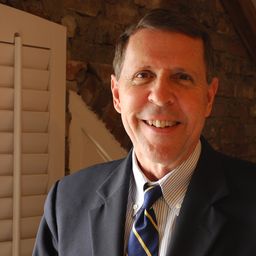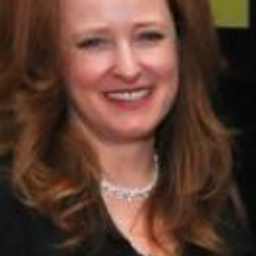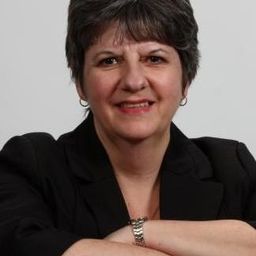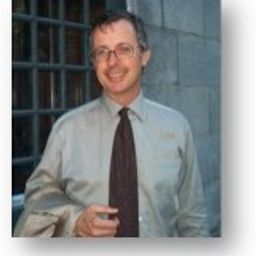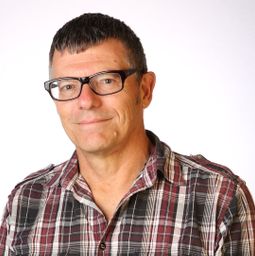
Dr Steve Brown
Sessions auxquelles Dr Steve Brown participe
Mardi 7 Juin, 2016
The roundtable will explore ideas around the concept of insignificance. That is, how things are judged to be unimportant, not worthy of conservation, meaningless, or without substantive power or influence. We will examine this notion in relation to the history, theory, and practical application of significance as a concept and method in heritage. In short, we will discuss the significance of insignificance. The notion of ‘significance’ is central to heritage conservation in many pa...
Sessions auxquelles Dr Steve Brown assiste
Vendredi 3 Juin, 2016
What does heritage change for tourism? | Le patrimoine, ça change quoi au tourisme? Ce débat veut interroger les relations entre le tourisme et le patrimoine et dépasser ainsi les idées reçues sur l'antagonisme entre le tourisme "corrupteur" et le patrimoine qui en serait la victime. Il s'agit donc de repenser le tourisme comme un réel acteur du patrimoine, de sa valorisation et de son appropriation, y compris par les populations locales. Cela présuppose, au p...
Find out more about all the eras that shaped Montréal with this interesting walking tour, from the foundation of Fort Ville-Marie in 1642 to today’s modern city. The historic heart of the city and its adjacent Old Port will help illuminate the story of one of the greatest cities in the Americas. Your guide will lead you through a maze of narrow streets where you can find a multitude of historic buildings. Explore the birthplace of our metropolis and experience a special voyage back in time! ...
Samedi 4 Juin, 2016
What if we changed our views on heritage? And if heritage has already changed? While, on the global scene, states maintain their leading role in the mobilization of social and territorial histories, on the local scale, regions, neighbourhoods and parishes have changed. Citizens and communities too: they latch on to heritage to express an unprecedented range of belongings that no law seems to be able to take measures to contain, often to the discontent of...
The notion of heritage is closely linked to processes of change. In the Western context, the definition of heritage as "a contemporary product shaped from history" (Harvey 2010) highlights the extent to which our relationship with the past is being continually re-configured. However, there is a future dimension implied in this relationship that is often neglected; to paraphrase William Morris, the sense in which heritage testifies to the hopes and aspirations of those now passed away. Making ...
Most of what we experience as heritage emerges into conscious recognition through a complex mixture of political and ideological filters, including nationalism. In these processes, through a variety of devices (museums, scholarly research, consumer reproduction, etc.), dualistic classifications articulate a powerful hierarchy of value and significance. In particular, the tangible-intangible pair, given legitimacy by such international bodies as UNESCO, reproduces a selective ordering of cul...
Dimanche 5 Juin, 2016
Movement, stillness, and creation will be combined during this walk as participants are encouraged to attune themselves to the environment through conscious emplacement. We will awaken our sensory awareness by experimenting with deep listening, observing impermanence and slow walking. Weather permitting, participants will also be invited to create a cyanotype photogram with found materials. An in-situ photogram is an image made in collaboration with the environment and enhances our a...
The constructed and political nature of heritage claims is now acknowledged across the disciplines, and increasingly even among heritage professionals. But already Eric Hobsbawm and Terence Ranger, in their seminal The invention of tradition, had proclaimed that “all invented traditions, so far as possible, use history as a legitimator of action and cement of group cohesion” (1983:12). So rather than simply diagnosing heritage as being constructed, as such (ab-)use of history, their challenge...
"What does heritage change?" is a multifaceted question to which the answer(s) are in primary respects related to real-life negotiations among different groups of citizens, cultures, races, ethnic groups, sexual identities, and social classes about received, official and/or widely accepted or accomodated intangible attributes, cultural traditions, historic monuments, buildings, and other transmitted or revived historical legacies. Heritage designated by and for whom, for what motivations, an...
Lundi 6 Juin, 2016
Canal: Walking the Post-Industrial Lachine Canal (COHDS, 2013 - bilingual) is an audio-walk and booklet that takes listeners from the Atwater Market to the Saint Gabriel Lock, exploring the post-industrial transformation of a once heavily industrialized area. The Lachine Canal area has undergone dramatic changes, as mills and factories were closed and then demolished or converted into high-end condominiums. The adjoining working-class neighbourhoods ...
Creator/performer: Lisa Ndejuru, Concordia University. Soundscape and projections: David Ward, Concordia University. Theatrical Performance with Projected Photos Le petit coin intact is a bilingual (FR/EN) performed monologue with soundscape and projections. The title of this series of short vignettes refers to a core of wholeness and strength so often contained in even the most extreme narratives...
Le patrimoine fait aujourd’hui l’objet d’attentions autant que d’agressions et de destructions. Cela peut s’expliquer par les difficultés de son identification ou de sa conservation. Cela peut plus profondément s’expliquer parce que, dès le départ, il célébre un événement ou conserve une mémoire qui peut être ou devenir une source de dissenssions et de conflits politiques. Enfin, sa reconnaissance suscite des gains économiques pour les uns mais des pertes pour les autres. Mais peut-être...
Mardi 7 Juin, 2016
The closing dinner of the conference, called “Pawâ” according to a French-Canadian tradition borrowed from the Native American lexicon, will be an opportunity to discover, in the heart of the Old Port of Montreal, an original culinary creation by the caterer Agnus Dei, from the renowned Maison Cartier-Besson in Montreal, leader in its field for its boundless creativity and event expertise. The dinner, in the form of stations, will offer delegates an exploration of Quebecois culinary heritage,...

